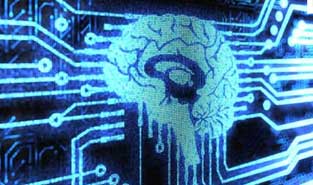
The answer for most people in modern industrial society would be to make a living so that they can survive economically. By surviving economically, I mean to produce goods or services, so that one can survive materially. There are people who enjoy their career, but for most people today, their life is where their work is not. Sometimes, they have to work constantly simply in order to survive, and therefore have little or no “life”. Work for most modern industrial people is making a living.
Nevertheless, I would say that there are other equally important purposes that are not being satisfied for most people in today’s industrial world. First, there is work as a vehicle for rich vibrant experiences. In the old days, work provided the opportunity for a person to engage the world in stimulating ways. This was possible because there were a lot of experiential surfaces available for organic imprints. In saying this, I am aware that life could be nasty and brutish for many as, for example, peasants confronted a multitude of hazards from the socio-political environment as well as natural environment. In terms of the natural environment, the grounding of nature contained a lot of partly differentiated figures like wild animals, poisonous plants, diseases and dangerous weather and geological phenomena as well as difficult rocky terrain that could make life difficult.
But even with these problems, work closer to nature had rich vibrant experiences intermixed with the dangerous ones which allowed a person to feel intensely alive. Engaging with the external natural world generates wonderful feelings that are not reducible to anything else.
Work has also provided the opportunity to prepare for death. In preliterate societies, many sacred artifacts are passed on from generation to generation. My home town, Chicago, was known for having a totem pole from the Northwest Coast Indians on the Pacific coast of Canada. It was in a park, and it was a landmark where many young people used to gather. However, it was a sacred totem pole, and a museum in British Columbia and the tribe wanted it back. Chicago very graciously gave the totem pole back to the museum and the tribe, and the tribe gave Chicago a new less valuable totem pole to replace it. The older totem pole was a sacred artifact, a preserved imprint, that the tribe and the museum wanted back in Canada. Many civilizations have produced all kinds of preserved imprints: monuments, castles, houses of worship, buildings, works of art, written music, books, written law, constitutions, and roads. These involved work that went beyond present economic survival.
For Americans, like other modern pioneer peoples with a Protestant work ethic, work became a mixture of economic survival, rich vibrant experiences and a strong desire to prepare for death. Americans enjoyed the experience of engaging with their physical surroundings. But while they experienced the rich vibrant experiences engaging with their surroundings, Americans wanted to conquer the surroundings and be transcendent over them. In the process, many of the organic imprints that were made in the rich vibrant experiences, were also fixed in a photographic sense or preserved. As America evolved, it became very successful at developing technology to help it preserve the imprints it made.
Like making imprints, preserving imprints is a distinct purpose from economic survival. People like to know that some of their work efforts will remain in some form, even after they, the people, perish. Work has been a major vehicle for preparing for death.
During the early years, Americans engaged with the basic materials of the world like more traditional peoples and made durable things with tools as carpenters, blacksmiths, tailors, weavers and potters. But as they have evolved, Americans have been so successful at preserving imprints, creating whole technological living environments, that it is more and more difficult to find organic surfaces to act as templates for future rich vibrant experiences. And there are fewer opportunities for leaving meaningful preserved imprints.
We are left with the idea of work for financial survival. Factory workers work with industrial machines; office workers work all the time with computers. Factory workers provide mass produced, machine imprinted products. Office workers work with preconfigured formulaic contracts and forms to provide impersonal services. Making as much money as possible through products and services becomes a substitute for the lack of rich vibrant experiences and lack of opportunities to leave meaningful imprints. And actually those people who do a lot of their work on computers take their office with them when they leave their office. Or else their computers simply become their offices. So they never have to leave work. And there is little to life beyond this work.
But because it is work primarily for economic survival and not for making and preserving organic imprints, it is work that is depleting rather than reenergizing. And it is work that exists outside of a meaningful life cycle that focuses on patterns of making and preserving imprints.
One other angle from which to examine modern work: because modern work is not very involved with making or preserving imprints and because it involves intimate interaction with machines and computers that mirror and model for humans, modern work tends to convert humans into robots. We deal with the ungrounded, free-floating figures of machines and computers in the experiential vacuum of modern technological living environments. We deal with the free-floating figures of tons of discrete defined data within the vacuum of a computer screen and with a lack of a larger cognitive context for this data. It is these ongoing technological experiences that lead people to think of themselves as being “wired” like machines. And the machine becomes the model for how we view our mental and physical organization as humans within the framework of science. And we become more what we think we are.


Artículos Relacionados: